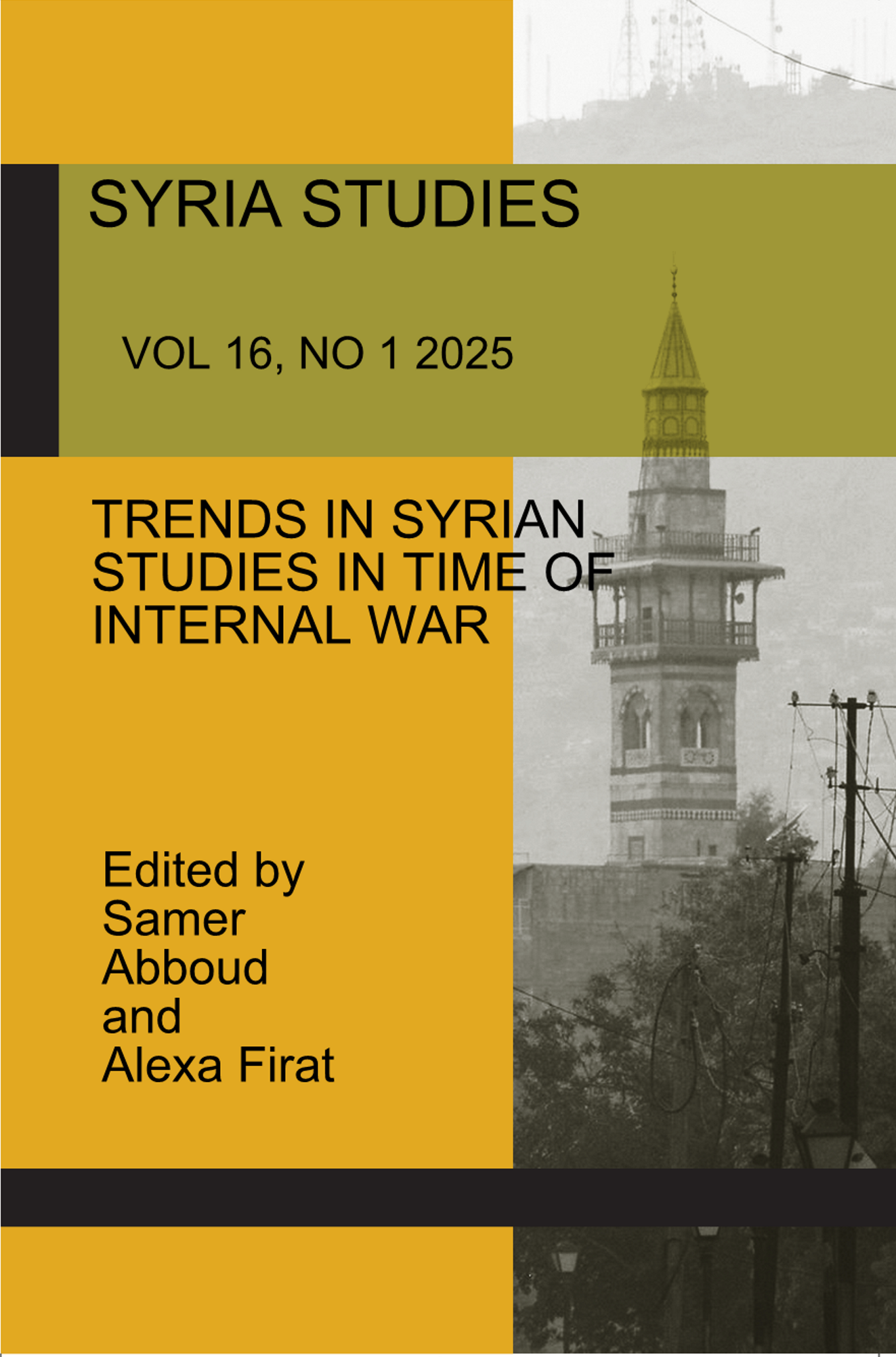This issue, Vol 16, No 1, of Syria Studies explores the impact of Syria’s internal war on research and analysis of Syria in the more the more than decade beginning soon after the outbreak of the Syrian uprising. Contributors write from the perspective of their own research and positionality as researchers from/of Syria. They explore such questions as: How do we conduct research amidst protracted war? What constitutes ‘the field’ when access to the country is virtually impossible for many of us? How are our research questions and methods shaped by the current state of protracted war? Abboud argues that the post-2011 period represents a new, fourth period that will shape Syrian state formation. Ghada Atrash’s essay forefronts how “epistemic activism” can disrupt knowledge production. Rula Jabbour examines the utility of Strategic Studies for iunderstanding the Syrian conflict. Sumaya Malas considers how the “post-conflict” framework discourages researchers from pursuing projects until conflicts are perceived to be over. Rimun Murad assesses the emergence of the war novel as a consequence of the conflict. Christa Salamandra’s reflection on ethnography on understanding Damascene elites. Uğur Ümit Üngör asks how the Syrian conflict has affected the conduct of wider international politics. Fadi Skeiker personal testimony centres on theatre as a practice of citizenship and social justice. Alexa Firat examines visual narratives of the conflict.
Published: 2025-04-16
